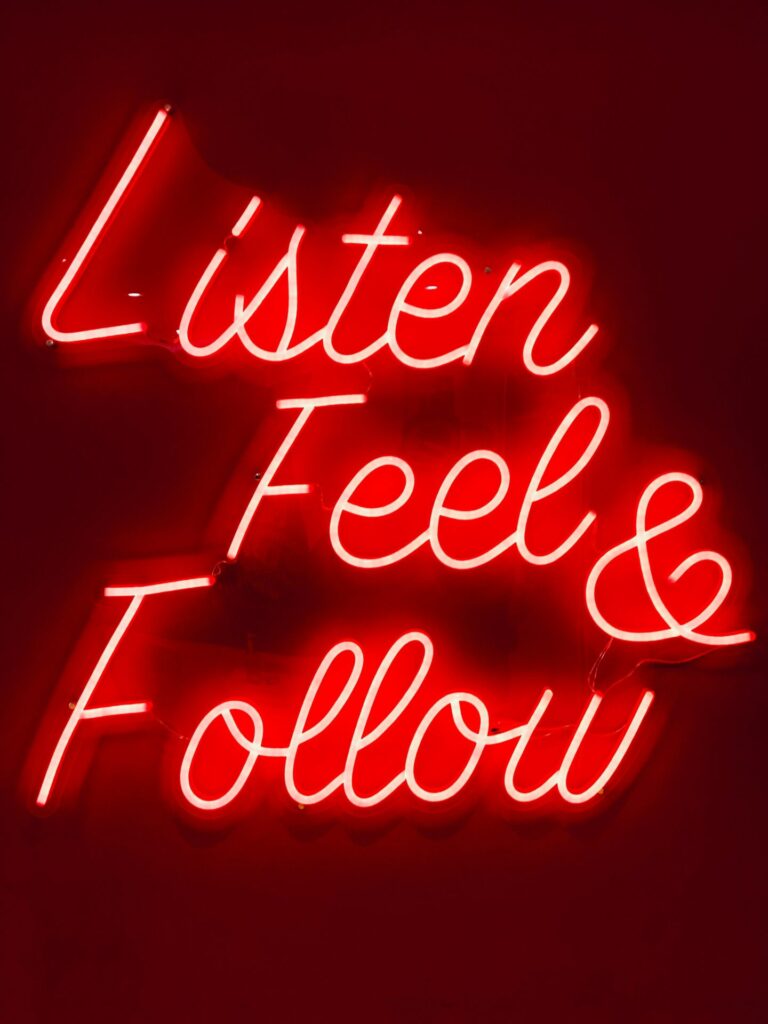What comes to mind when you think of your best and worst career decisions you’ve made?
I thought it would be interesting to share some of my best and worst career decisions during my time as a therapist. Should be fun! 😀

And, of course, just because something was a great decision for me doesn’t mean it’s a great decision for everybody else. On the flip side, just because something was one of my worst decisions doesn’t mean it would necessarily be a bad decision for somebody else.
This article is just a compilation of my own reflections on my best and worst career decisions as a therapist. There may be things that you can glean but my thoughts are not prescriptive.
If you’d rather watch than read, check out the video version of the article below:
My best career decisions
Part of why I felt like sharing the best and worst career decisions I’ve made is because I really feel satisfied in my career as a therapist. I get that I have a very unconventional career setup with seeing clients part-time and running an online business. But, I was also really happy in my career back when I was seeing clients full-time.
So here are 6 decisions I think helped me find the success I have.
1) following my gut

I think one of the best decisions I’ve made in my entire career is to follow my gut. As I reflect, I realize that almost all of the pivotal moments in my career had something in common. They all tended to be moments when I was making a leap primarily based on a gut feeling. The instinct was so strong and impassioned that it felt like it wasn’t really optional to do anything else.
This dates all the way back to when I was 14 years old and dealing with severe panic disorder. I treated myself with library books (because the internet didn’t have all the answers that it does now!).
After doing systematic desensitization on myself and having great success, and having a very terrible therapist for one session, I decided I could do a better job than they could. I felt like therapy was my destiny. So I followed that gut instinct. And it didn’t waver at all from 14 until now.
That sensation of following my gut really has served me throughout my career, and guided me through many career pivots.
2) do the thing; ask questions later
Another approach to my decisions that’s proven to be successful overall is whenever I’m at a fork in the road making a decision rather than asking the question: “Can I actually do that?” I ask, “What’s stopping me?! Why not? Why can’t I do that?”
Of course I wouldn’t try something I wasn’t qualified or credentialed for. But, if I have something that feels like a reach or a dream, and it’s legal and ethical to try that thing I am passionate about, then I am going to just try it! I will be okay with it not working. But, I’m going to attempt it instead of stopping myself with doubts and not even trying.
When I finished graduate school at the age of 25 I got offered a position in a private practice to do my postdoc hours. I had a lot of doubts about being in private practice as a 25 year old. Was I able to do that?!
Turns out: yes! Legally in California you can be a postdoc in private practice. So I did it! I’m so glad I did it that way.
Along the way, I’ve also had doubts about being capable of starting an online business, or applying to be an adjunct professor. But my approach of: “Why not?! Let me just try!” has served me really well.
3) embrace failure
Another good decision in my career has been to reframe my “failures” as “pivots”. When I use the word “failures” I’m not referring to epic or ethical failures.
Instead, I’m referring to failures such as thinking that I wanted to become a child psychologist only then to try it and find that I’m not good at that and don’t like it. Is that a failure? Or just a pivot?
I think how we frame moments like this in our mind is incredibly valuable in helping us build resilience. You may be tempted to feel like a failure, but really, it provides an opportunity for a pivot.
Making this mindset shift really helps make decision making a lot simpler. It helps to try something new if I have the attitude of: “I’m willing to try this. If it fails, then I will pivot.”
4) surround myself with healthy people

I think some of the best decisions that I’ve made in my career have been decisions I’ve made based on surrounding myself with healthy people. Rather than emphasizing some other priority.
This starts on the high level with really important things. Like, making sure the people in my consult group are people that I deeply, deeply trust. These are people that I can come to with literally any kind of issue and know that I’m going to be okay.
I surround myself with friends and therapist friends who are healthy people who I admire so much. I’m also connected with other female psychologist entrepreneurs who I feel like are really healthy in how they approach their careers and personal lives.
5) decline expensive trainings
This is definitely the best decision for me, but might not necessarily be for everyone. For me, one of the best career decisions I’ve made is declining really expensive trainings when it’s something that I’m able to learn on my own.
I’m not talking about getting credentialed in some sort of clinical tool. I’m referring to trainings about things like how to grow your practice, or your online business.
I notice that a lot of the advice that I give doesn’t necessarily align with what others are saying because I’m largely self-taught. And in being self-taught I got to structure things in the way that I like. The way that I like doing things may not be the way that someone else likes doing things.
But, I think it does help me have a bit of a different voice in the stratosphere.
6) question anything that feels fishy
It’s a tendency of mine that I used to feel ashamed about and now I feel like it’s my superpower. I tend to question and doubt anything that seems remotely fishy. Or even just confusing to me.
I will be the person asking the questions, annoyingly so. Although, over time I think I’ve gotten better about being tactful with my questions.
I have so many memories of sitting in group meetings where no one else is asking questions. I will be the person to ask clarifying questions. Sometimes the response is gratitude and a quick clarification. But, generally, if someone is not being explicit about something it’s because I am finding something fishy that they’re trying to hide.
Worst career decisions I’ve made
1) taking advice from people I don’t respect
Some of the worst career decisions I’ve made have been connected to me taking the advice of people I didn’t really respect. But, I felt like I needed to take their advice because they seemed to have more authority or experience than I did.
I’ve heard all kinds of advice from people who seem to know better than me that has proven to be untrue. Some have told me that I wouldn’t be able to be successful in private practice, that I had to publish my dissertation in order to launch my career, and that I’d never make money in an online business.
These advice givers were wrong, at least in my case. Most of this advice came from people I didn’t respect to begin with. So I already had enough information to know that I didn’t need to listen to what they were saying.
2) hurrying

Another variable that led to some of the worst career decisions was hurrying. I was capable of doing a lot of stuff without listening to my body and my mental well-being.
There would be moments in my career when I was in such a hurrying mindset that I didn’t realize that I was hungry, or that I needed more sleep. I was pulling all-nighters writing my dissertation, and driving daily 100+ miles around the Bay Area because I took on way too many jobs early in my career.
So many poor decisions were made when I was hurrying. I think hurrying was probably a symptom of something deeper going on.
If I’m in a hurried state, I think that’s a signal that I’m probably not attuned to making wise choices at that moment.
Rather, it is a good moment to hit pause, slow down and access any tools to help me not hurry. Then, I can get back into my body and listen to my gut.
3) saying “yes” to every opportunity
Another contributor to some of my worst career decisions is saying “yes” to opportunities simply because I was excited that I was offered the opportunity. Even if it didn’t align at all with any of my projected goals. And even if it cost me something.
This is kind of a silly example, but I remember it so prominently from graduate school. I decided to sign up for an extra internship to do psychological assessments. Before I even signed up for that internship I knew that I didn’t want to do psychological assessments for my career!
But, here I was signing up for this unpaid internship, that cost me extra school credits to do, and was a 40 mile commute away.
Plus, I was trying to get this work done while also working on my dissertation, doing a full load of school work, and a part-time internship. It was just chaos. But, it felt special to me that that opportunity was there, so I said “yes”. And that “yes” didn’t benefit me in any way.
Reflecting
I’m sure there’s more I could add to both the best and worst career decisions lists. Thanks for joining me on a walk down career memory lane. Hope you found it helpful to read what decisions I felt like were my best and which variables contributed to my worst career decisions.
It is my hope that my reflections can be a catalyst for some personal reflection on what categories of decision making work well for you, or don’t work.
Learning from experience
As I’ve come further in my career, I enjoy taking time to consider what I’ve learned and how I’ve changed from the beginning of my career in therapy. The video below takes a look at what’s changed for me as I’ve become a seasoned therapist vs. a newbie.
I have been very fortunate to find success in my work as an entrepreneur and therapist. My article called How I’ve Reached Success As An Entrepreneur will outline my speculations on what helped bring me success.
And until next time, from one therapist to another: I wish you well!
-Marie
Photo by Jon Tyson on Unsplash
Image by Merch HÜSEY on Unsplash
Photo by fauxels on Pexels
Photo by JÉSHOOTS on Pexels
Leave A Reply